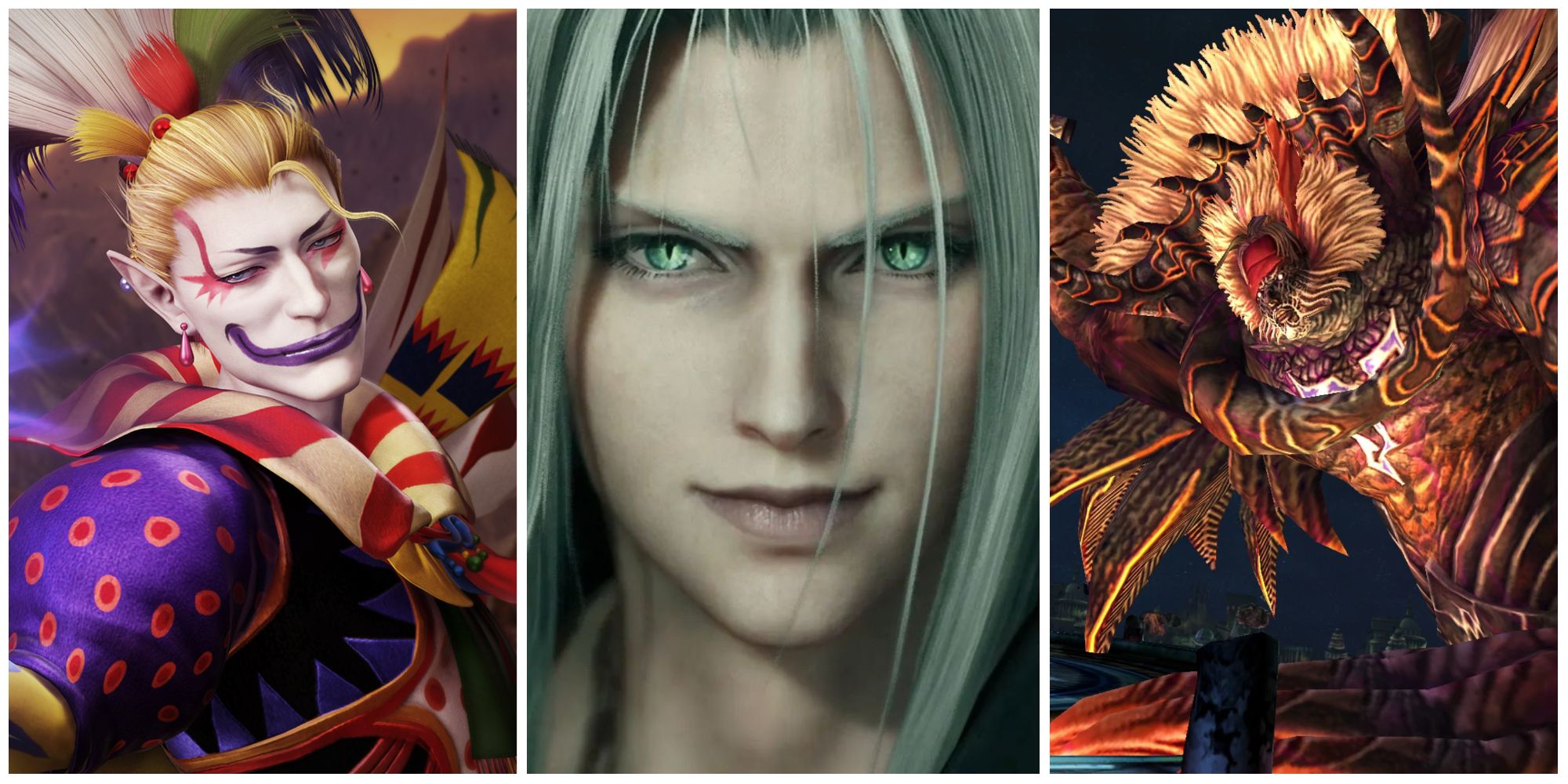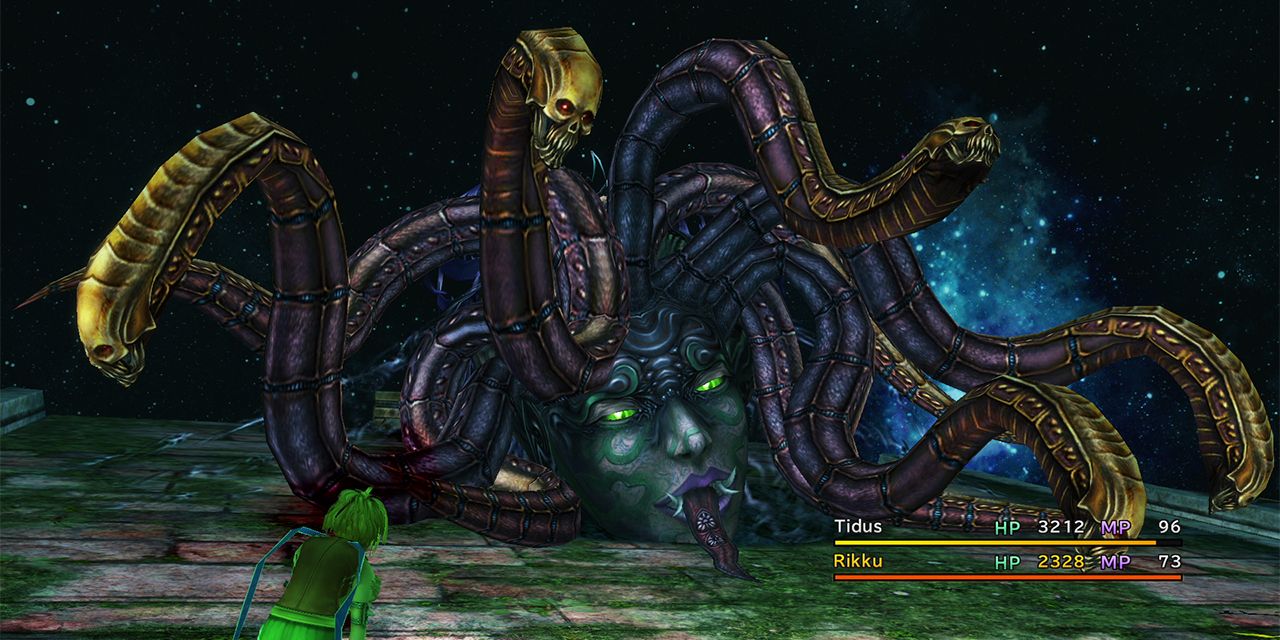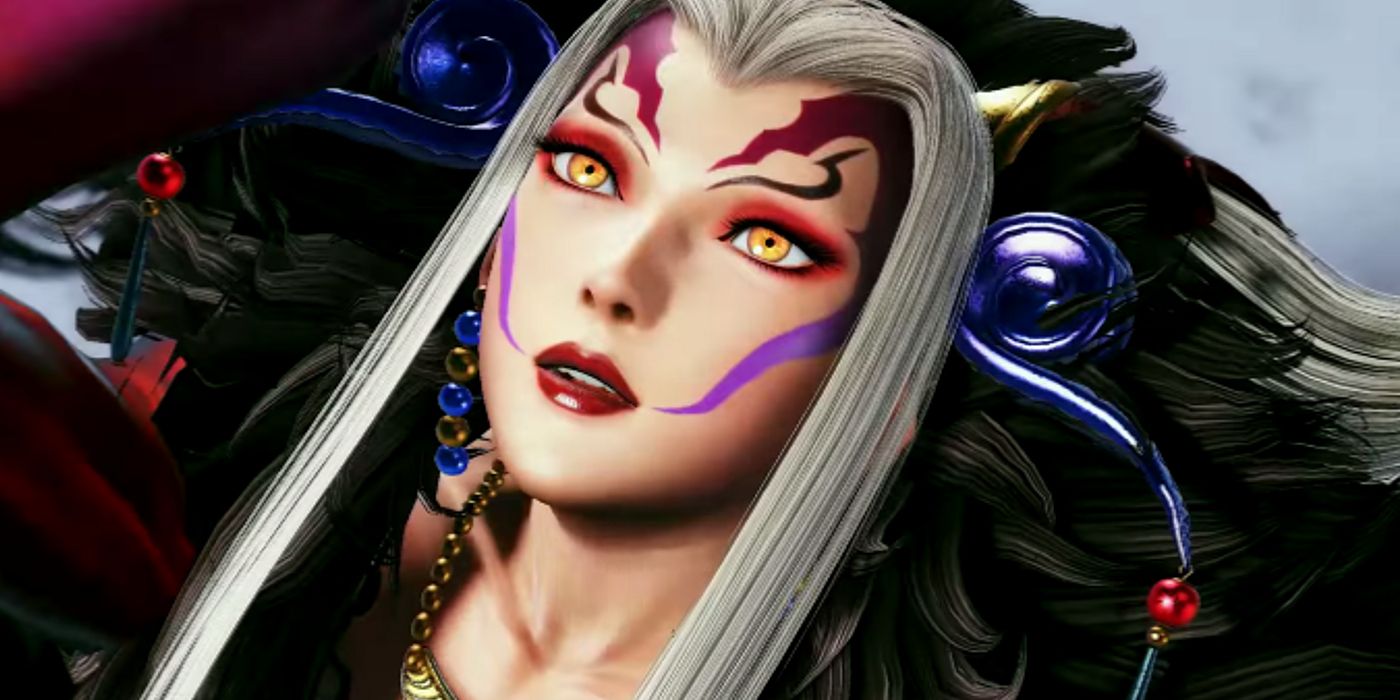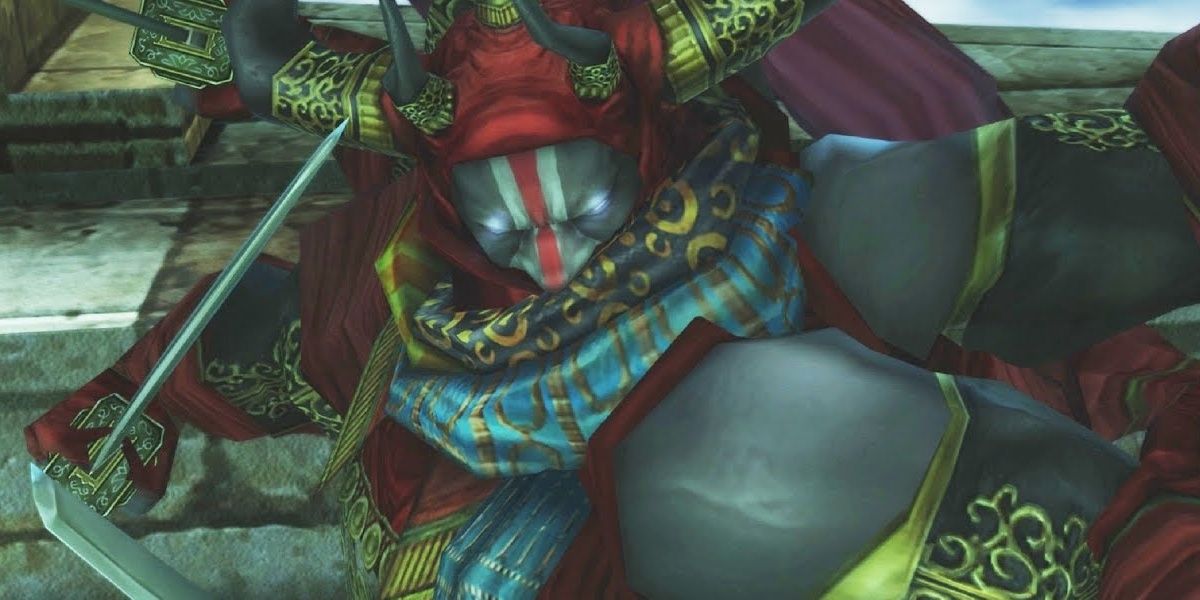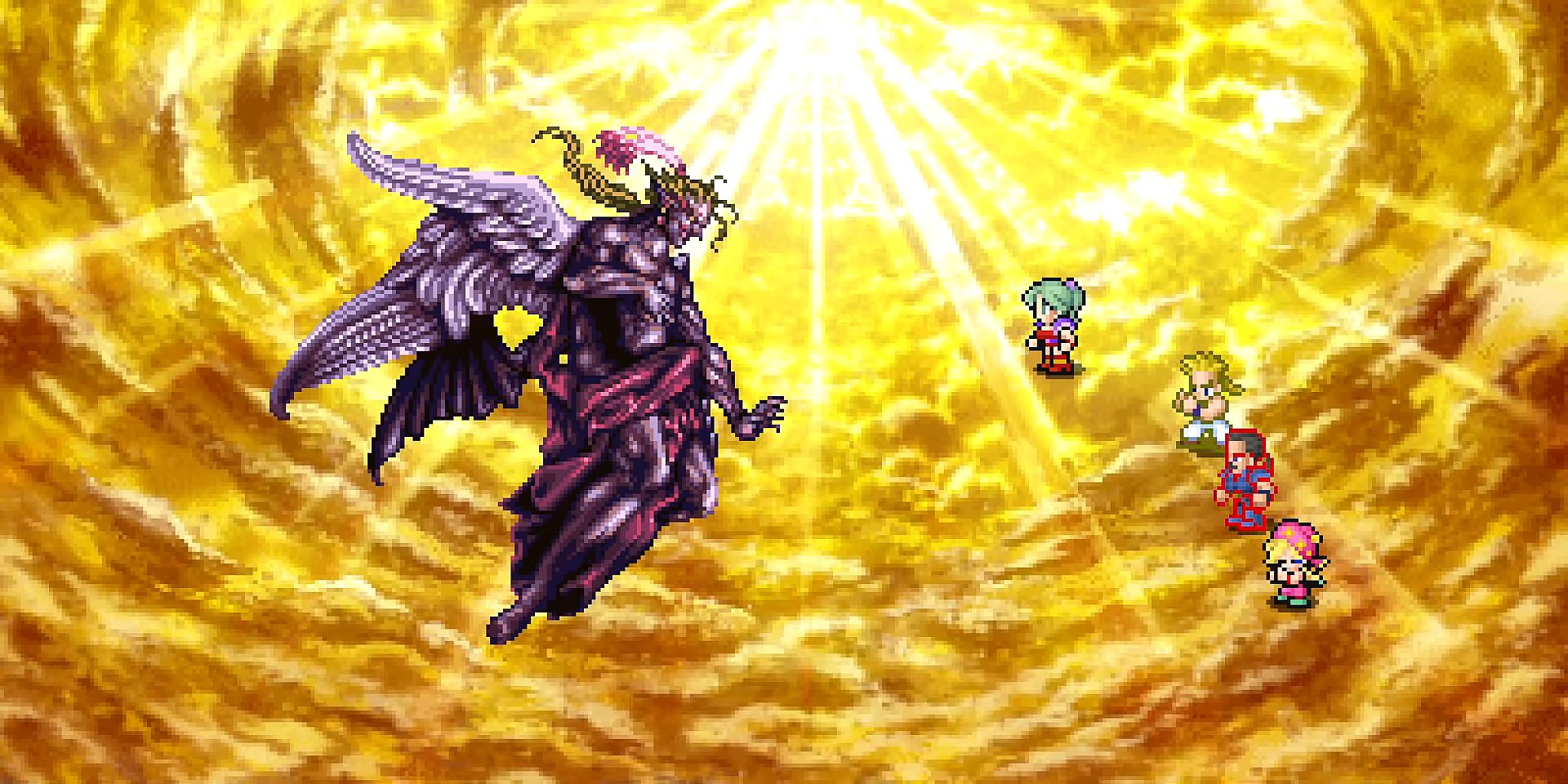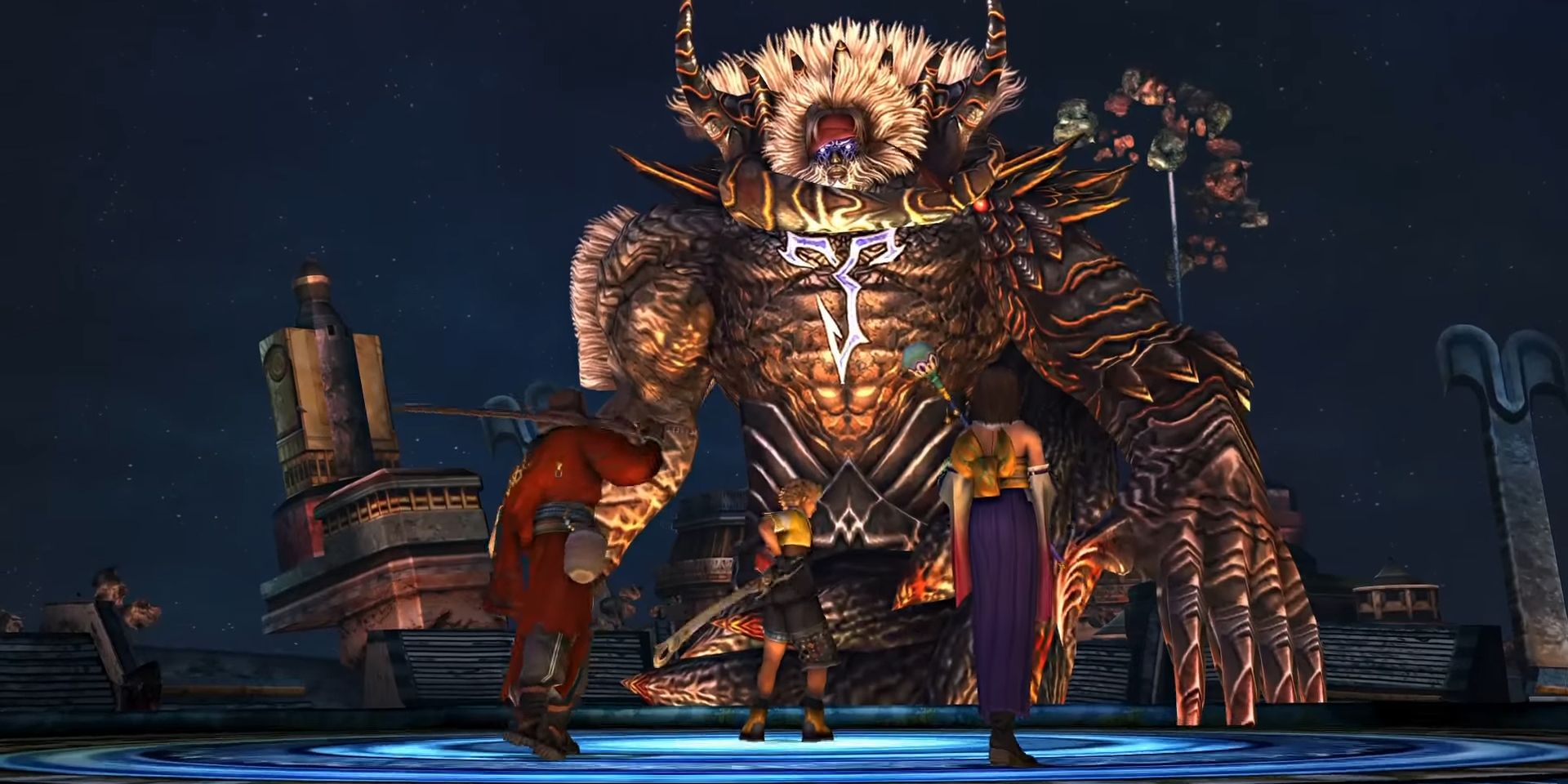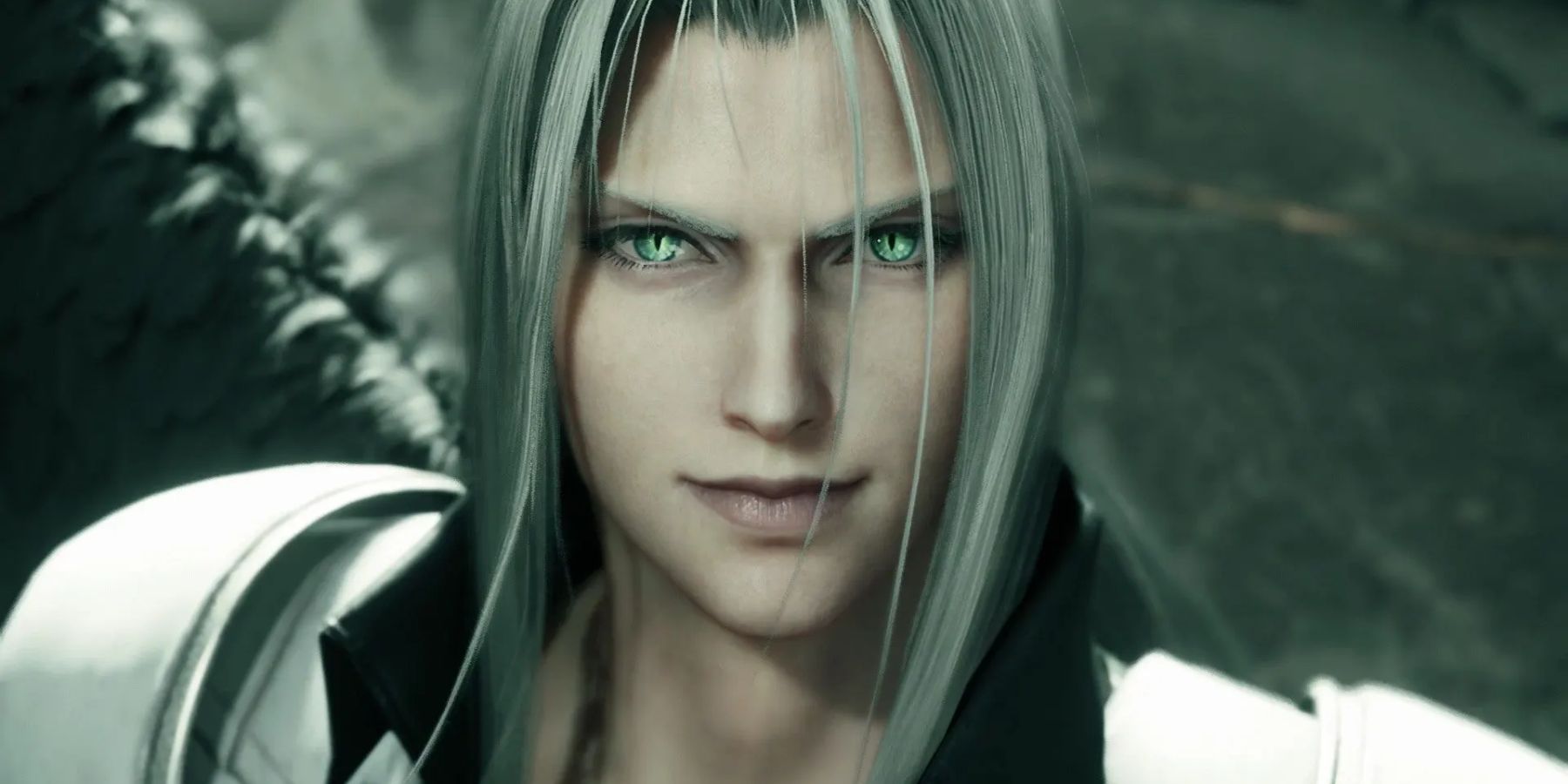The Final Fantasy franchise is home to some of the most emotional moments in video game history. An engaging cast of unique characters and an immersive setting are two vital ingredients for shaping its entries, but a game will only truly thrive if the appropriate music is implemented.
Final Fantasy features an array of beautifully composed melodies to further enhance the overall experience. Some of the themes composed for certain boss fights will usually aim to convey a sense of dread while also showcasing the boss' personality and mindset. Most boss themes in the series have been meticulously crafted to suit the tone, with many going above and beyond to evoke a sense of fear in the player.
6 Challenge - Final Fantasy 10
The Challenge theme plays multiple times throughout Tidus' journey across Spira, but most fans of the game will associate it with the battle against Yunalesca. Yunalesca poses one of Final Fantasy 10's biggest challenges, so it is likely the player will be forced to face her multiple times before they can best her in combat.
The remaster of Final Fantasy 10 featured an updated score that revitalized much of the game's original tracklist. Though Challenge was thoroughly reworked, the remaster allows the option to listen to the original soundtrack if the player wishes to. The original Challenge suited the battle arena especially well with its synth-heavy riffs and out-of-place, artificial noises. It served to highlight exactly how small the party was in the dauntingly infinite arena they found themselves in. There is an element of futurism to the song's design that can easily alienate the listener due to the primitive world it is set in, but this is never permitted to happen. The compelling speech Auron delivers during the song's opening is yet another reason the track became as iconic as it has.
5 The Extreme - Final Fantasy 8
The final battle against Ultimecia in Final Fantasy 8 is made even more spectacular thanks to Nobuo Uematsu's exceptional score. The Extreme marks the beginning of the end with each of its musical sections documenting a different phase of the long-awaited clash between good and evil.
Unlike most of the game's themes, The Extreme opens with a soft yet eerie piano progression that allows the battle's tension to slowly build. These somber keys and strings eventually give way to a fast-paced, synth-riddled verse, reminiscent of the franchise's previous battle themes. The intro to The Extreme lulls its listeners into a false sense of security before fully embracing its role as a boss theme and the frantic way it plays out is redolent of Ultimecia's erratic nature, thus further elevating the horror she brings.
4 Battle At The Big Bridge - Final Fantasy 5
Nobuo Uematsu's Battle at the Big Bridge is a recurring boss theme in the Final Fantasy series. It was initially composed for Final Fantasy 5 but has since been utilized numerous times to set the tone for future encounters with Gilgamesh, an elusive being capable of traveling through space and time. The theme itself has undergone a variety of different changes in terms of its composition, but its core themes have remained mostly the same.
It's fast-paced and unpredictable, two features that work in tandem to highlight Gilgamesh's eccentric personality. Its presence in a Final Fantasy game will usually set an entirely new tone, especially in Final Fantasy 12 where it stands out exceptionally well from the rest of the score. The Battle at the Big Bridge is one of the most iconic pieces of music in the entire Final Fantasy series so, without it, Gilgamesh would likely have remained nothing more than an ordinary boss.
3 Dancing Mad - Final Fantasy 6
The ultimate battle against Kefka features some of the most complex music arrangements to ever grace the Final Fantasy series. Dancing Mad is an aptly named piece of music that fully captures the extent of Kefka's shattered mind. In a way, the structure of the song documents his journey from the beginning to the end of Final Fantasy 6's story.
The battle will open with a collection of organs harmonizing with each other. It starts slowly, but its 18-minute runtime permits it the chance to evolve into something completely different. While composing this piece, Uematsu attempted to break away from the norms of songwriting and, by doing so, created an unconventional masterpiece.
2 Otherworld - Final Fantasy 10
Otherworld, composed by Nobuo Uematsu, is first played during the opening cinematic of Final Fantasy 10, but its most memorable moment takes place during the game's climax where Tidus is forced to fight his father, Jecht. Unlike the game's other musical pieces, Otherworld is heavily influenced by metal, evident through the guttural vocals and distorted guitars featured on the track.
It is the most unique track to feature in the game, and may very well retain this title across the entire franchise. Its presence in the final battle of the game further cements a sense of finality, while also promoting an element of terror in an already frightening encounter. It suits the abyssal setting the battle takes place in but never distracts the player from the challenge they are faced with. Without Otherworld, the battle with Jecht would be nowhere near as iconic.
1 One-Winged Angel (Rebirth) - Final Fantasy 7 Remake
The original One-Winged Angel, composed by Nobuo Uematsu, was the most intricate song featured in Final Fantasy 7. Uematsu stated in an interview with Polygon that he wanted to create something unique for the final battle with Sephiroth and, by doing so, blessed the series with its most popular song to date.
He took inspiration from 70s and 80s rock music while piecing the song together, while also using Stravinsky's Rite of Spring as a basis for the tone he wanted to replicate. The PlayStation console that FF7 was first released on was unable to capture the raw power of this track, but the Remake released in 2020 managed to remedy this. The upgraded battle with Sephiroth is now accompanied by an orchestral version of the song, with several new measures adding to the battle's overall sense of spectacle.

